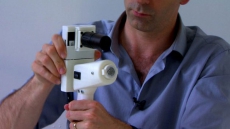Scientists have found that men have approximately 400 more active genes in their skeletal muscle than women.
In the report, a team of scientists produced a complete transcriptome - a key set of molecules that can help scientists see which genes are active in an organ at a particular time.
"I hope that the gene activity results from this study will become a reference for human skeletal muscle and provide the basis for many new studies investigating skeletal muscle in different diseases and dysfunctions," said Malene Lindholm from the department of physiology and pharmacology at the Karolinska Institutet in Stockholm, Sweden.
For the study, the team recruited nine male and nine female volunteers.
They extracted small pieces of skeletal muscle from both legs of each study participant.
Gene transcripts were isolated from the muscle pieces and then sequenced so that the code for all transcripts could be used for comparing samples within a muscle - between individual legs and between men and women.
Results produced the whole transcriptome of human skeletal muscle in both men and women.
"This report is another important step toward developing treatments based on genome and gender," said Gerald Weissmann, editor-in-chief of the FASEB Journal that published the study.
Each gene that has been identified as being active in skeletal muscle is a potential drug target for a variety of muscle diseases, disorders and conditions.
"Now, we can understand our muscles better and possibly develop more optimal treatments and a more personalised health care," the authors concluded.





